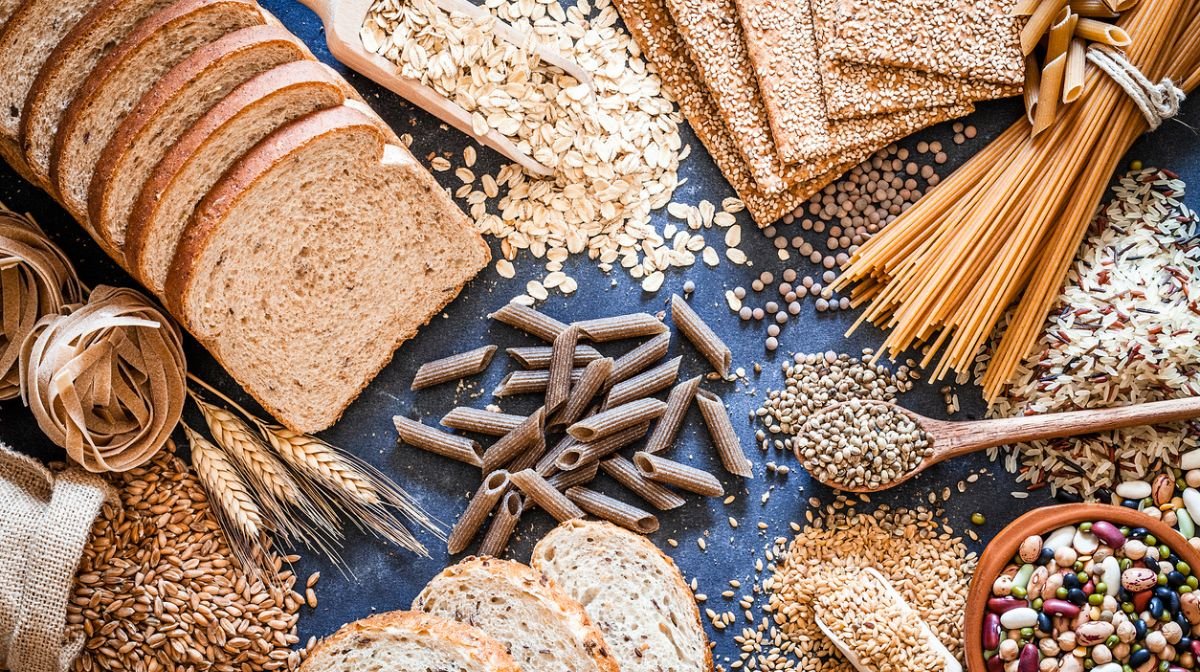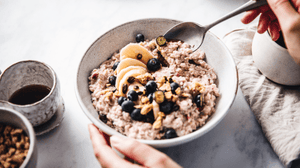Carbohydrates are a type of macronutrient found in many foods and beverages and are one of our body's main sources of energy, fibre, and nutrients.
Whether you're looking to find out what carbohydrates are, or are concerned with improving your overall health, this article provides you with everything you need to know about complex and refined carbohydrates.
What Are Carbohydrates?
Carbohydrates can be found in both healthy and unhealthy foods – everything from bread, beans, popcorn, and even soft drinks. There are two main types – complex and refined carbohydrates, these two sub-types can contain sugar, starch, and fibre.
Refined carbs are known as the ‘bad’ carbohydrates as these contain the most sugar, whereas complex carbs contain mostly starch and fibre, and are referred to as ‘healthy’ carbs. Starch contains fibre, calcium, iron and B-vitamins – providing your body with the nutrients it needs to function at its healthiest.
It's recommended that you should fill your plate with mostly healthy carbs – vegetables (excluding potatoes) and fruit taking up half of your plate, as well as wholegrains filling about one quarter of your plate.
What Is the Difference Between Refined Carbs and Complex Carbs?
Refined Carbs
What are refined carbs? They include:
- White bread
- White pasta
- White rice
- Pastries
- Fruit juice
- Plus many more delicious treats
Refined carbohydrates, also referred to as simple carbs, contain a large portion of sugar and lack nutrients. This is because during the process of being refined, grains lose a wide variety of vitamins and minerals that contribute towards your overall health and wellbeing.
The body digests refined carbs quicker than complex carbohydrates as they contain shorter chain molecules. This means that the body converts them into glucose quicker causing a spike in blood sugar and quicker release of energy.
Regular consumption of simple carbohydrates may lead to a higher chance of weight gain, which is caused by the quicker processing of glucose – leaving you feeling hungrier and more prone to snacking and overeating. Therefore, it’s important that refined carbohydrates are an occasional treat rather than being consumed with every meal.

Complex Carbs
Complex carbohydrates includes:
- Wholegrains
- Legumes
- Oats
- Sweet potatoes
- Quinoa
These foods contain starch and are high in fibre, providing a wide range of health boosting properties. Healthy carbs have long chain molecules which allow them to digest and break down glucose slower, helping to reduce sugar cravings and leaves you feeling fuller for longer.
Complex carbs provide your body with longer lasting energy as opposed to causing blood sugar crashes – often leaving you feeling weak, hungry and dizzy. They also provide a variety of nutrients including B-vitamins and magnesium.
Our Organics range of multivitamins for men and women are made from a wide variety of whole foods, fruits and vegetables – all classified as complex carbohydrates. It helps to support healthy skin, maintain normal nails, contribute to normal energy-yielding metabolism and reduce fatigue.
Why Do We Need Carbohydrates?
Having carbohydrates in your diet can mean the difference between surviving and thriving! Complex carbohydrates provide your body with glucose, an important source of energy. As a backup, our body can use other sources of fuel such as proteins and fats when there’s a lack of glucose.
This means that technically we don’t need carbohydrates for energy but using fats and proteins is not our body’s preferred source of energy. Avoiding carbs is not the best option for your health as it cuts out a large group of foods that provide nutrients and dietary fibre.
Benefits of Healthy Carbs
1. They May Provide Energy
Complex carbohydrates are the body's main fuel source. During digestion sugars and starch are broken down into simple sugars and absorbed into the blood stream with the help of insulin. This affects your blood sugar and allows the glucose to fuel your activities – whether you’re going for a jog or simply breathing.
Learn more about how to boost your energy levels without caffeine for better overall health:

Ways to Boost Energy Without Caffeine
Coffee who? Discover different ways to boost energy in this article.
2. May Help to Maintain Weight
Eating plenty of complex carbohydrates such as fruit, vegetables and wholegrains can help you to maintain weight. As the longer chain molecules help to release energy at a slower rate, your body feels fuller for longer, has reduced sugar cravings, and is less likely to feel fatigue.
3. May Protect Gut Health
Healthy carbs contain a large proportion of fibre which is essential for optimal digestive health. Although fibre doesn’t provide energy directly, it does feed the friendly bacteria in the digestive system – these bacteria can use the fibre to produce fatty acids that some of our cells use for energy.
It’s important to care for your gut health as it can impact on your overall health and wellbeing. Take a look at our blog on how to improve your gut health and explore our range of probiotic supplements to support your digestive system.
In this case, “you are what you eat” can certainly ring true. It's important to be aware that the foods you eat can impact both the way you feel and your physical health. You should focus on maintaining a balanced diet with lots of complex carbohydrates and keep refined carbs as a treat. Healthy carbs will leave you feeling fuller, more energised and improve overall wellbeing.
Read more on ways you can improve your gut health in this article:









